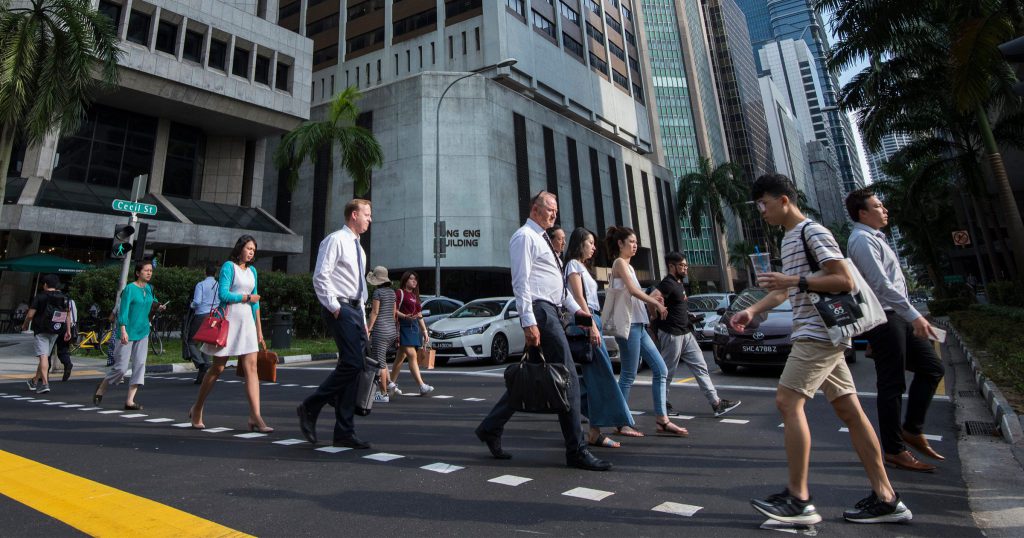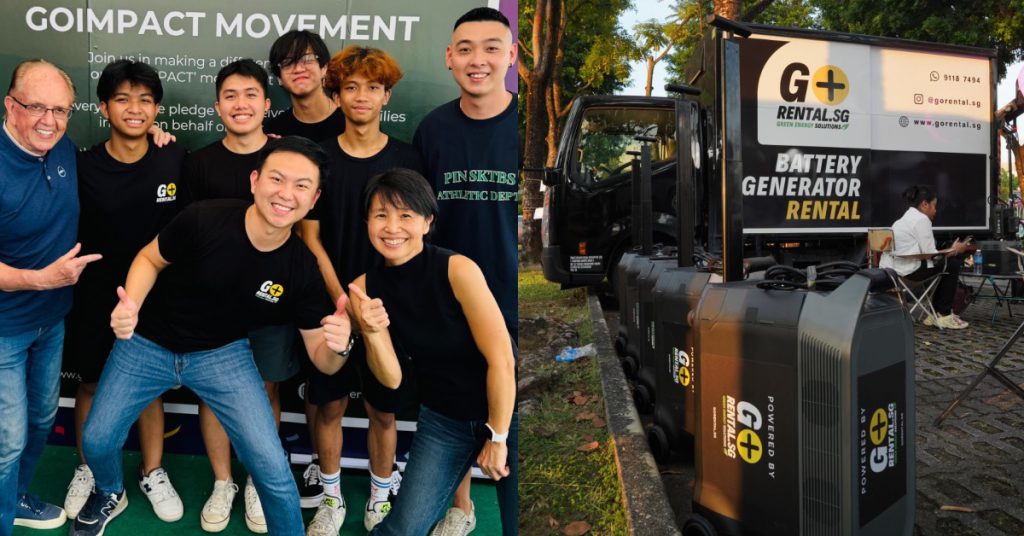[Update, 19 June] Earlier this month, on June 2, we speculated that Go-Jek would soon roll out its bikes here, based on a photo of its Singapore office and a check on Bizfile that confirmed it is indeed a live business.
As it turns out, Go-Jek’s Singapore office at AXA Tower in Shenton Way, which began operating in January, is focused on data science.
“We try to utilise Go-Jek’s massive data to create intelligent systems,” Go-Jek vice-president of data science Misrab Faizullah-Khan, who heads the Singapore office, told The Straits Times.
He added that these data are used to determine surge pricing and to better match commuters and riders.
According to the article, Go-Jek chose to house its data science operations in Singapore because of the “large talent pool” and the technological infrastructure here.
“We don’t have to worry about the Internet suddenly going out here,” explained Mr Faizullah-Khan.
Out of its 20 employees here, 16 of them are data scientists and Go-Jek hopes to hire more data scientists and engineers in the future.
So is there no chance of Go-Jek motorbike taxis here in Singapore?
Mr Faizullah-Khan emphasised that the firm has its eyes set on its home market for now. Since Indonesia is a huge market with 250 million people, Go-Jek is “very far from saturating that market”.
However, he said the firm has “not ruled out a regional game plan” for the future.
When that happens, they might probably face a legal roadblock. The Land Transport Authorities (LTA) has stepped up to say that “motorcycles are not allowed to be used for point-to-point transport services, unlike taxis and private hire cars.”
–
A colleague of mine just sent me this snapshot of his friend’s Instastory:

Just like her caption, this is the question that everyone at Vulcan Post is asking: “Is Go-Jek in Singapore?!”
Slightly excited at the thought, we did a quick Google search which revealed that the Indonesian company indeed has a corporate office in the heart of CBD, at AXA Tower.

For those unacquainted, Go-Jek is an Indonesia-based hyperlocal transport, logistics and payments startup that’s founded in 2010.
Is The Business Live?
Another search on Bizfile – a portal under Accounting and Corporate Regulatory Authority (ACRA) – shows that the company is up and running.
One discrepancy from the earlier snapshot though, Go-Jek Singapore is apparently addressed at OUE Bayfront instead. That could only mean one thing: the Google search result was inaccurate. (Bizfile is a government directory, so it’s legit.)
Also, the Unique Entity Number (UEN) reveals that the company has been listed since 2016, so it’s still a fairly new company. Barely a year I’m sure, because it has yet to file any financial statement.

We also noticed that the company is listed under “Professional, Scientific and Technical Activities” so we decided to compare it with Uber, which obviously shares the same industry as Go-Jek. Here’s what we found:

Both are parked under the same industry. Does that mean that Go-Jek Singapore Pte Ltd is running the same business as Uber, and we can soon expect it to start operating in Singapore?
If this happens, the ride-sharing industry will face an even stiffer competition with the entry of a new player.
Go-Jek Stepping Up Its Game With US$1.2B
Go-Jek, the direct rival of Uber and Grab in Indonesia has raised US$1.2 billion funding last month led by Chinese Internet giant Tencent, according to TechCrunch.
The deal values the on-demand ride-hailing app firm at US$3 billion, making it the largest startup by valuation. The Sequoia Capital-backed startup was valued at around US$1.3 billion last year when it raised US$550 million from KKR and Warburg Pincus.
With the capital, Go-Jek aims to fiercely compete against Uber and Grab on driver and passenger subsidies, and work more on its mobile payment business. TechCrunch also reported that it has plans to extend its services business, which will enable users to avail more services such as shopping, massages and others on demand.
A recent Google-Temasek report estimated Southeast Asia’s ride-hailing market to be worth $13.1 billion by 2025, with Indonesia expected to be the largest market in the region.
With this new US$1.2 billion warchest, and the fact that Indonesia is the biggest player in the region, it’s no surprise if Go-Jek wants to enter the Singapore market to better take on Uber and Grab.
With a new kid on the block, they better watch out.
Featured Image Credit: Go-Jek












